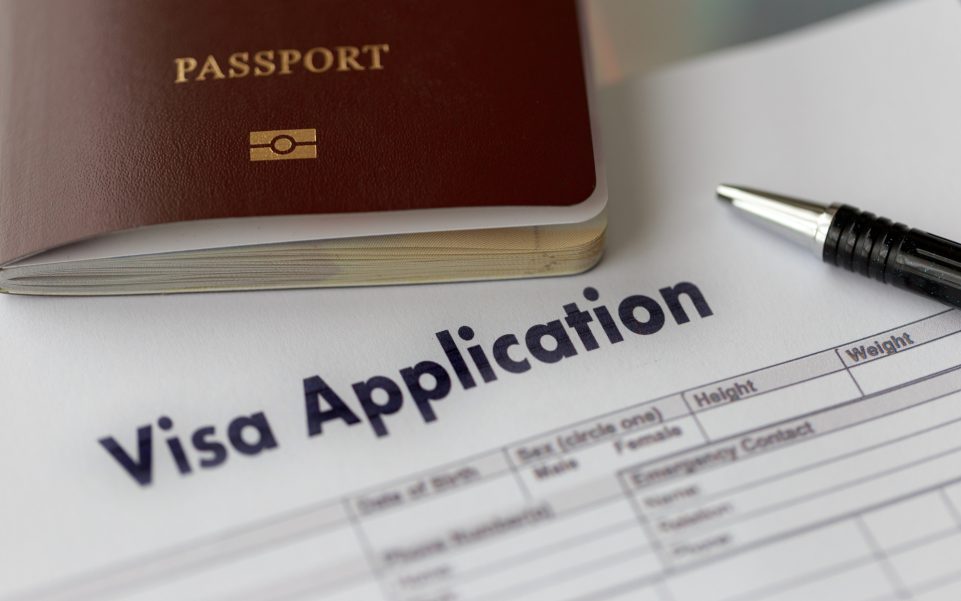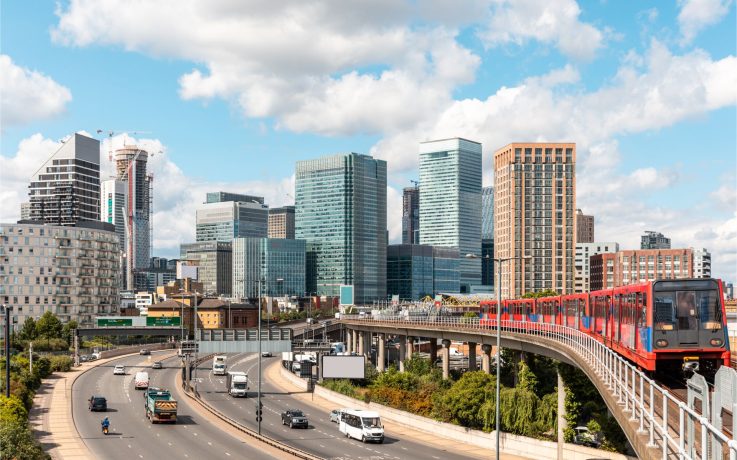How to Obtain UK Work Visa? A Detailed Guide

Thousands of foreigners come to the UK every year in search of a better life. We won’t be able to cover all the benefits of living in the UK – it would require a separate article, but we will focus on the main ones.
Skilled workers choose the UK to get a unique work experience and improve their professional skills. Entrepreneurs are attracted by the opportunity to make a profit in a huge market and a business-friendly environment. Caring parents come to the UK to provide their children with a top-class education and a secure future. All categories of immigrants talk about the UK’s high standards of living, the quality of healthcare, and safety.
Nowadays, we see an increase in the number of qualified specialists from a shortage occupations list, sportsmen and religious workers moving to the UK.
Who Does Not Need to Apply for a UK Work Visa?
There are now fewer categories like this after Brexit. Let’s see who does not need a visa to be employed in the UK:
- Irish citizens.
- Citizens from the EU, Switzerland, Norway, Iceland or Liechtenstein who have been granted settled or pre-settled status to remain in the UK under the EU Settlement Scheme until 30 June 2021.
- Settled people.
All other categories of foreigners, including newly arriving residents of European countries, must obtain a visa of the appropriate category to work in the UK.
Seven Benefits of the UK Work Visa
The UK government is interested in attracting a high-quality labour force to the country, so it provides many opportunities for foreigners:
- A long-term work visa to the UK allows you to stay legally in the country for several years.
- Visa costs are not high, especially compared to the amounts spent on Innovator and Tier 1 Investor visas.
- Spouses and minor children can be brought to the UK.
- A UK work visa allows you to come and leave the country whenever you want.
- Under the UK rules, UK work visa holders can not only work but also study with some restrictions.
- A second job and voluntary work are also not allowed if they do not interfere with your main job.
- You can apply for indefinite leave to remain (ILR) if you have worked in the UK for the last 5 years and meet all the eligibility requirements.
If foreign specialists want to change a job or an employer, they have to apply for a new visa. Moreover, as a rule, they cannot claim social benefits in the UK.
What Are the Long-Term Work Visas in the UK?
In the Immigration Rules, there are 5 main categories of long-term work visas. For clarity, we have gathered all the important information into a table below.
|
Category |
Duration |
Benefits |
|
Skilled Worker visa |
5 years |
It is the easiest way (among all these categories) to move to work in the UK |
|
Intra-Company Transfer Worker visa |
Depends on the term defined in the certificate of sponsorship and the employee’s salary |
Cumulative time spent in the country is up to 9 years |
|
Health and Care Worker visa |
5 years |
Some benefits can be claimed The government can extend visas free of charge in times of infectious diseases outbreaks |
|
International Sportsperson visa |
3 years |
Both an elite sportsperson and a qualified coach are eligible for the visa |
|
Minister of Religion visa |
Up to 3 years and 1 month |
It applies to all immigration routes – from a missionary relocation to the UK to transferring a priest within a monastic order |
All five categories have the same rules when it comes to employment in the UK – they are based on sponsorship and sponsorship licence system.
UK Sponsorship Licence
Before you move to the UK to work as a research scientist, car mechanic, paediatrician, molecular physics teacher, or coach, you need to find an employer. The company that agrees to employ you is your sponsor.
Being a sponsor in the UK means:
- Having enough resources to hire foreign employees and ensuring that any worker is paid in line with the salary rates set out in the Immigration Rules.
- Obtaining an official sponsorship licence to hire foreign specialists.
- Using the UK visa sponsorship management system. It is a specialised tool used by sponsors to engage with the authorities and assign certificates of sponsorship. You should appoint people within your business to manage the sponsorship process.
- Monitoring their employees’ immigration status to report any changes (e.g. dismissal) to the UK authorities.
Any foreign employee hired by a UK company must be paid in line with the salary rates set out in British law. There 3 options for minimum salary requirements:
- The ‘going rate’ for the type of work you’ll be doing.
- £25,600 per year.
- £10.10 per hour.
If your company uses all three options, the highest one is applied to determine your salary.
Not every science laboratory, company, healthcare institution or enterprise has a lot of resources to pay salaries. Moreover, there is a shortage of skilled specialists and young people in several sectors of the British economy. If you have the necessary qualifications, you can rely on a salary of 70%-90% of the applicable going rate for the job.
What Is a Certificate of Sponsorship?
You can apply for a UK work visa if your employer agrees to sponsor you. They will give you a certificate of sponsorship if they are interested in your services and are ready to hire you.
A certificate of sponsorship is an electronic document with a unique reference number within the UK visa sponsorship management system. If a UK company issues a certificate of sponsorship to you, it takes the responsibility for your working status.
An electronic certificate of sponsorship is mandatory for any UK Work visa application. If for any reason the Home Office withdraws your employer’s sponsorship licence, you must urgently find a new sponsor and obtain a new certificate to stay in the UK.
Procedure of Obtaining a UK Work Visa Using the Example of a UK Skilled Worker Visa
There are strict requirements by the Home Office that applicants must meet to qualify for a UK Skilled Worker visa.
Requirements for Obtaining a UK Skilled Worker visa
There are general requirements and those applied only to the applicants for a UK Skilled Worker visa. The former are relatively straightforward:
- You must be 18 or older.
- Good reputation – no criminal records, immigration offences or entry bans.
- Good health – no dangerous infectious diseases; you must also pay an immigration health surcharge.
Let’s suppose you meet all the general requirements. The immigration authorities will approve your Skilled Worker visa application if you:
- Do a job that’s on the shortage occupation list.
- Have a certificate of sponsorship from your employer with information about the job you’ve been offered in the UK.
- Are paid a minimum salary – £25,600 per year before tax.
- Have certain qualifications and work experience.
- Meet the English language requirement.
You can apply for a UK Skilled Worker visa at one of the visa application centres in your home country or directly in the UK if you are switching to the UK Skilled Worker category.
You must pay a fee to the Home Office upon application. If your visa is refused, your application fee will not be refunded. UK visa applicants usually consult immigration advisors to avoid wasting time and money. A competent specialist can avoid mistakes during the preparation of the application and supporting documents.
Who Can Be Included in an Application?
The main applicant can include a spouse and minor children in all 5 categories of work visas to the UK. Unmarried partners also count, but in this case, you will have to prove your relationship.
If your children turned 18 while in the UK and at the time they were your dependants, they can also be included in an application for a UK Skilled Worker visa.
How Much Does It Cost to Obtain a UK Work Visa?
The amount depends on such factors as your first citizenship, future occupation, submission location and the number of dependants in the application. Therefore, we will give approximate amounts for two common options:
- The main applicant moving to the UK alone.
- The main applicant moving to the UK with two dependants, a spouse and a child.
Costs usually include maintenance. You have to prove that you have funds to support yourself upon arrival in the UK without government support.
Application fees for a UK Skilled Worker visa
| Fees | Single applicant (£) |
A family of 3 (£) |
|
Work visa fees |
625 – applications made outside the UK for visas up to 3 years
1,235 – applications made outside the UK for more than 3 years 719 – applications made in the UK for up to 3 years 1,423 – applications made in the UK for more than 3 years |
1,875 – applications made outside the UK for up to 3 years 3,705 – applications made outside the UK for more than 3 years 2,157 – applications made in the UK for up to 3 years 4,269 – applications made in the UK for more than 3 years |
|
Immigration health surcharge |
624 per year |
1,872 per year |
|
Maintenance |
1,270 |
1,870 |
Additional information notes:
* If your job is on the shortage occupation list, the reduced fee for each person applying is £479 (up to 3 years) and £943 (more than 3 years). The fee is the same whether you’re applying from inside or outside the UK. If you work in healthcare or education, there is another shortage occupation list.
** An applicant must pay an immigration health surcharge (£624 per year) as part of an immigration application.
*** Applicants must have money in their bank accounts for at least 1 month before applying or employers should guarantee to support them.
How Long Does It Take to Apply for a UK Skilled Worker Visa?
It depends on the place of application. You will get a decision on your visa within 3 weeks after you attend your appointment at the visa application centre in your home country. If you apply inside the UK, you will get a decision on your visa application within 8 weeks.
If you are not happy to wait 1-2 months, there is priority processing for £500. You will get a decision on your application for a UK Skilled Worker visa in five days. You can pay an extra £800 to use the super priority service to get a decision by the end of the next working day.
How Long Can You Stay in the UK on a Skilled Worker Visa?
This will depend on an applicant’s immigration category. In some cases, the time is clearly defined by law, while for other visa holders, there are several options for settlement.
A UK Skilled Worker visa and Health and Care Worker visa can be granted for up to 5 years; an International Sportsperson visa may be issued for up to 3 years. You can come to the UK on a Minister of Religion visa for a maximum of up to 3 years and 1 month, or the time given on your certificate of sponsorship plus 14 days. You can stay in the UK with a Senior or Specialist Worker visa for:
- The time given on your certificate of sponsorship plus 14 days.
- 5 years.
- The maximum total stay allowed for a Senior and Specialist Worker visa is:
- 5 years in any 6 years if you’re paid less than £73,900 a year;
- 9 years in any 10 years if you’re paid £73,900 a year or more.
Extend a UK Work Visa
Foreign specialists can usually apply to extend work visas if:
- They have the same job as when they were given their previous leave to enter or stay in the UK.
- Their jobs have the same occupation code as when they were given their previous permission to enter or stay in the UK.
- They are still working for the employer who gave them the current certificate of sponsorship.
When considering the applications of those who have moved within the company to a UK branch, the Home Office takes into account their maximum period of stay.
The UK government can simplify the visa extension procedure for those foreign workers whose jobs are on the shortage occupation list. For example, healthcare workers could extend their visas for one year free of charge during the COVID-19 pandemic.
Once a foreign specialist has spent in the UK more than 5 years, they can apply for indefinite leave to remain (ILR), or settlement. It gives them the same rights as all other British citizens.
How to Apply For ILR as a Skilled Worker?
You can apply for ILR if you’ve been living and working in the UK for at least 5 years and spent no more than 180 days outside the UK in any 12 months.
Applicants for ILR or UK citizenship are required to prove their knowledge of the English language and culture. To do that, you will need to pass the Life in the UK test and meet the English language requirements at the Common European Framework of Reference level B1 or above (by submitting your degree or by passing a test). You may find questions to practise the Life in the UK test online. A degree that you can use (bachelor’s, master’s or PhD) must be from a recognised UK university and taught in English.
Your adult dependants must also approve their knowledge of the English language and a high level of integration into the UK society if you include them in your application for ILR. Children over 18 can also apply with you if they have come of age while in the UK.
If you struggle with applying for ILR, please ask for advice. You can apply for UK citizenship after you have lived in the UK as a settled person for one year.
Obtaining a UK Skilled Worker Visa: Summary
One of the most affordable ways to move to the UK is employment. To do it, most foreign specialists will not only need to find a suitable job in the UK but will also need to apply for a work visa in the appropriate category.
The rules offer several visa categories for working in the UK, the most popular of which is the UK Skilled Worker visa. The UK authorities are interested in attracting skilled workers from a wide range of occupations, so they control economic immigration through a system of sponsorship licences and certificates.
After 5 years of working in the UK, an immigrant who has been successfully integrated into the UK society can apply for ILR and, after a year, for UK citizenship.
FAQ about UK Skilled Worker visa
What level of English is required to get a UK Skilled Worker visa?
You must prove you can read, write, and speak on day-to-day and business topics alike, i.e. have knowledge of English to level B1 on the CEFR scale (Common European Framework of Reference for Languages). However, depending on your visa, the requirements differ, and you must meet them to score 10 points:
- B1 for a Health and Care Worker visa.
- B2 for a Minister of Religion visa.
- A1 for an International Sportsperson visa.
- B1 for a UK Skilled Worker visa.
If you have a degree from one of the UK universities, you do not need to take a language test. If your university is not in the UK, you must prove that your course was taught in English. 10 points are scored immediately by nationals of countries where English is the official language. Neither do you need to prove your knowledge of English if you’re a national of one of the former UK colonies, including small Caribbean islands.
Can I apply for a UK Skilled Worker visa if my salary will be lower than the officially set rate?
The annual income must be at least £25,600. If you are paid less than £25,600, you can still apply for a UK Skilled Worker visa if:
- Your specialisation is from the shortage occupation list.
- Your wage will be at least £10.75 per hour.
You can be paid between 70% and 90% of the usual going rate for your job if your salary is at least £20,960 per year and you meet one of the following criteria:
- Your job is a shortage occupation.
- You’re under 26, studying or a recent graduate, or in professional training.
- You have a first doctoral degree in science, technology, engineering and mathematics, or a degree in any other area if your minimum annual income amounts to at least £23,040.
- You have a higher doctoral degree.
Does an EU citizen need a Skilled Worker visa to work in the UK?
From 1 January 2021, EU citizens do not exercise the exceptional right when applying for a UK Skilled Worker visa.
There are three exceptions:
- EU citizens who came to the UK before 31 December 2020 and have not applied for the EU Settlement Scheme before 30 June 2021 for a valid reason, namely the circumstances outside of their control, such as domestic violence or a long-lasting illness.
- EU citizens joining their family members who relocated to the UK before 31 December 2020.
- Irish citizens do not need a Skilled Worker visa to work in the UK.
Who can get a £55 discount on a government fee?
You pay a lower government fee if you are a citizen of almost all European countries. Contact immigration advisors for a full list of countries. The discount applies only to the main applicant. Dependants must pay a full government fee.







